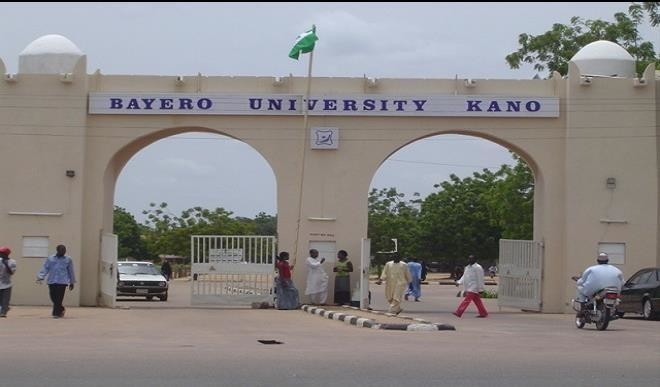Media professional suggests measures against fake news
A media professional and academician, Professor Umaru Pate of the Faculty of Communication, Bayero University, Kano (BUK), has identified measures for tackling fake news in Nigeria. Speaking on the dangers of fake news and how to tackle the menace, he said there was the need to encourage partnership and networking among credible media organisations within and […]

A media professional and academician, Professor Umaru Pate of the Faculty of Communication, Bayero University, Kano (BUK), has identified measures for tackling fake news in Nigeria.
Speaking on the dangers of fake news and how to tackle the menace, he said there was the need to encourage partnership and networking among credible media organisations within and outside the country, encourage media owners to support their organisations on issues of credibility and acceptability over the social media through quality journalism. He said this would reduce the attention accorded to fake information.
He also identified the importance of increased and continuous training for conventional and social media journalists as one of the means of curbing fake news, adding that regulatory bodies like the National Broadcasting Commission (NBC) and the Nigerian Press Council (NPC) deserve additional support and autonomy to effectively carry out their duties.
According to Pate, there is the need for increased involvement of professional bodies like the Nigeria Union of Journalists (NUJ) and the Radio, Television and Theatre Arts Workers Union (RATTAWU) in calling members to order. There should also be increased media literacy for the public, particularly young people, on how to assess and respond to media messages. He also said the media should endeavour to exhibit a high level of professionalism by reporting accurately and responsibly in line with the media code of conduct.
He further said the media should check and verify the information before going to press. Professor Pate said fake stories had many implications and are highly dangerous to the society if not properly checked.
“Fake news can undermine the unity and peace of the country, with explosive consequences. By its nature, democracy looks adversarial, but fake news makes it worse. It can exacerbate distrust, division and violence in the already divided diverse polity. And it can undermine the confidence and certainty of citizens,” he said.
Fake stories, usually in a sensational nature, are created and often widely shared or distributed, especially in online media, to generate traffic to sites. It often seeks to promote or discredit either a public figure or political movement and many others.
The British Broadcasting Corporation (BBC) defined it as, “Completely false information, photos or videos, purposefully created and spread to confuse, deceive or misinform the public. These include old photographs shared as new and satires that mean no harm, but can fool people” (BBC, 2018).
Unarguably, fake news abounds in social media. In Nigeria, for instance, there have been many cases of fraudulent news items. The recent one being the news of President Buhari’s purported planned wedding, which was awash on social media platforms.
Although it is difficult to trace the origin of this news, it is believed that it was first fabricated by Twitter users, from where it went to other social media outlets like Facebook, WhatsApp etc.
Undoubtedly, fake stories are widely circulated on Facebook as its users also keep a good number of followers or friends. Through this platform, fake stories get to all nooks and crannies of society.
In rural areas where everybody does not have access to the internet, the few who have are usually accorded a lot of respect. Many people in the locality rely on them for news updates. These social media users in such areas are more or fewer opinion leaders; hence they exert certain informal influence on others.
Notably, media houses also rely on online sources for information, therefore, as Professor Pate said, there’s the need to always verify such stories before going to press.
When the news about President Buhari’s intended wedding broke out, many people believed it was true, especially as Bashir Ahmad, one of Buhari’s aides did not, at first, make an effort to disclaim it. So, people thought it was a way of saying the news was true.
Instructively, cases of fake news in Nigeria are on the increase, and unless measures are put in place to checkmate the ugly trend, it will continue to cause havoc in the country.
